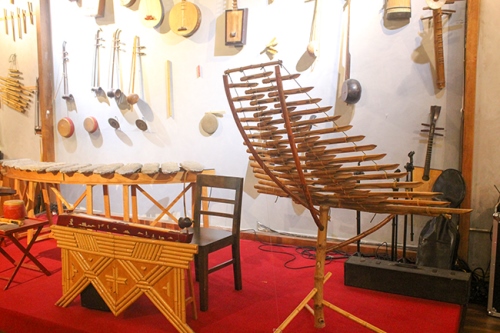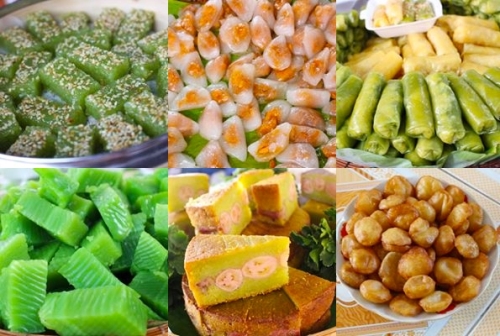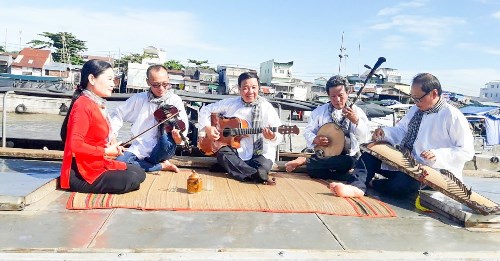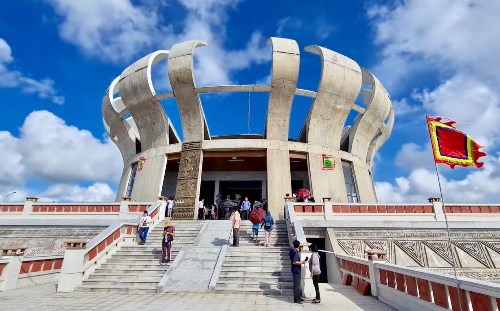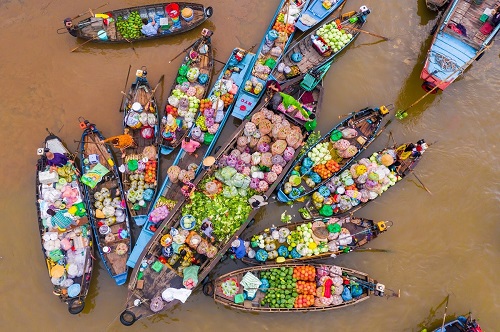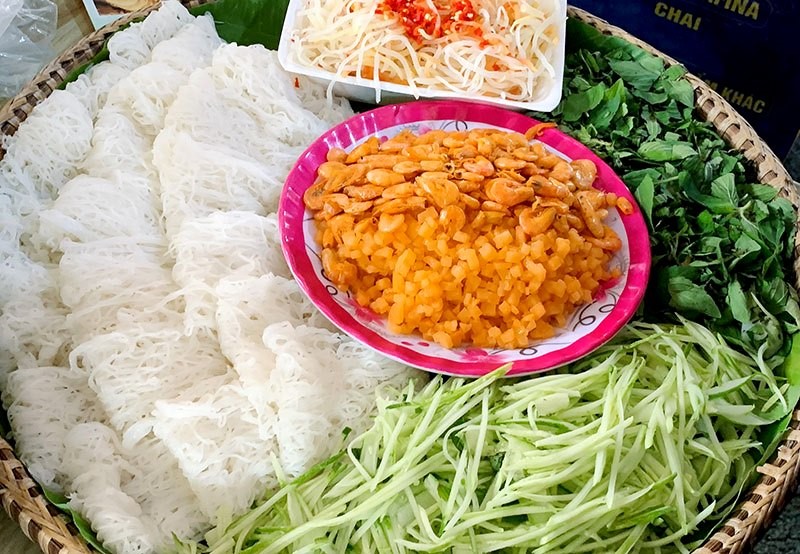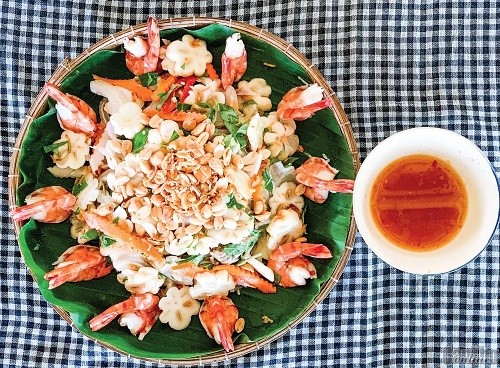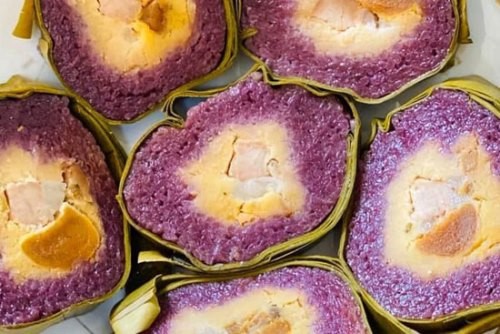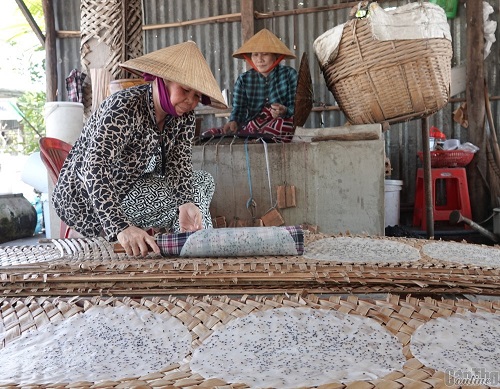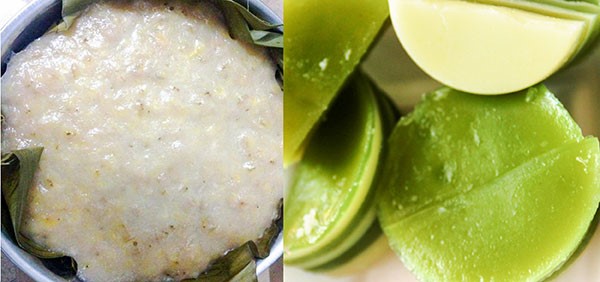
The National One Commune One Product (OCOP) program aims to enhance the rural economy by increasing the value of products using local strengths, creativity, resources, raw materials, and cultural characteristics. Vietnam currently boasts over 10,000 OCOP products, and numerous local OCOP centers are being established, creating opportunities for developing tourism associated with OCOP products. In Can Tho City, there are approximately 148 OCOP products rated 3-4 stars, coming from 74 entities such as enterprises, cooperatives, production facilities, and business households. These products include clean vegetables, fruits, processed foods, teas, spices, bird's nests, cordyceps, and community tourism services. Notably, My Khanh Tourist Village was recognized as the Mekong Delta's first 4-star OCOP tourism product.
Deputy Director of My Khanh Tourist Village Nguyen Huu Hoang mentioned that they have a specific area dedicated to showcasing and introducing OCOP goods associated with the craft village. Currently, there are approximately 40 OCOP products from Can Tho and the Mekong Delta being showcased to tourists. Visitors can also participate in making OCOP products, such as honeycomb sandwiches, and enjoy herbal teas during holidays or weekends.
Similarly, at Con Son Agricultural Tourism Cooperative, there is also a display area for introducing OCOP products. Ms. Le Thi Be Bay, the manager of the OCOP product introduction area at Con Son Agricultural Tourism Cooperative, explained that the display area, located at the cooperative's common house, has been operational for about 2 years. They aim to establish an agricultural tourism platform to promote local agricultural products, particularly those with a clear origin and made from indigenous ingredients. Currently, there are about 15 products on display and being introduced, including 9 products from Can Tho City. Some products, such as Long Giang custard-apple tea, and medicinal and healthcare products, have shown consistent consumer demand.
Despite the availability of over 10,000 OCOP products in the country, OCOP product gathering and tourist service points are not widely recognized. In Can Tho, there are only about 10 places that cater to tourists with OCOP products. Some popular locations include My Khanh Tourist Village in Phong Dien district, Con Son Agricultural Tourism Cooperative in Binh Thuy district, and Nha Be rice noodles Facility on the Cai Rang floating market in Cai Rang district. Additionally, there are a few business gardens, such as Ut Anh Pangasius fish sauce facility in Thot Not district and Co Diep guava garden in Thot Not district. Mr. Chuong Van Khanh, the owner of Ut Anh Pangasius fish sauce facility, mentioned that nearly a dozen fish products are available, including fish sauce and dried Pangasius. Visitors can witness the drying processes and enjoy a variety of products, with dried Pangasius being particularly popular. Ms. Le Hong Diep, the owner of Co Diep guava garden, shared that her house has a guava garden open to visitors. In addition to freshly picked guavas, the garden also offers a specialty: fermented guava juice, which has been recognized as an OCOP product. Although products are made continuously, they are not sufficient for sale. In the near future, she plans to introduce guava leaf tea as well.
Can Tho City plans to integrate the OCOP Program with tourism and eco-tourism models. This integration aims to introduce and enhance the value of products, increase income for establishments producing and trading OCOP products, and boost tourist spending. To achieve this, the People's Committee of Can Tho City has issued Plan No. 107/KH-UBND, outlining the implementation of the rural tourism development program for building new rural areas until 2025. The plan emphasizes the promotion of sustainable tourism based on green growth, coupled with the development of rural tourism, OCOP products, and the cultural resources unique to each locality. Can Tho aims to develop and standardize rural tourism destinations and products by 2025, with the goal of having at least one recognized tourist destination associated with cultural agriculture, local professions, or the ecological environment. Additionally, the city aims to have 50% of rural tourism service establishments recognized to meet tourist service standards. In pursuit of these goals, Can Tho will focus on developing high-quality, diverse, and distinctive tourism products that reflect the city's identity and provide high value to target audiences. The city also intends to focus on building high-quality rural tourism human resources and deploying pilot models for green, responsible, and sustainable tourism. Special attention will be given to exploiting rural tourism associated with OCOP products.
Introducing OCOP products into tourism is seen as a way to boost agricultural product output and promote agricultural tourism growth. However, this integration requires an operational mechanism and market connection to be successful.
According to Mr. Nguyen Huu Hoang, Deputy Director of My Khanh Tourist Village, not all products can be experienced by tourists, and some items have a short shelf life, making it challenging to maintain a steady market. Since many OCOP products are produced by business households without a strong promotion strategy, it's difficult to establish a connection.
To incorporate OCOP products into tourism activities, localities should focus on developing tourist infrastructure and offering a diverse range of OCOP products at tourist destinations. Additionally, they should establish a coordination and operational framework to support business households, cooperatives, and enterprises in operating effectively and sustainably.
Source: Cantho News - Translated by Hoang Dat





